- Anna Tsybuleva
- Weston Noble
- Philips Records
- Dietrich Buxtehude
- Maud Powell
- Alicia Rytlewski: Three Sisters Farm Suite
- Libĕna Séquardtová
- Gaudete
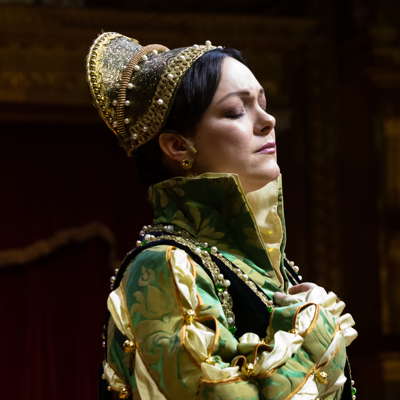 FROM ROME: From December 2009 until March 2023, the late Giuseppe Pennisi sent us regular reports from the Italian opera and classical music scene.
FROM ROME: From December 2009 until March 2023, the late Giuseppe Pennisi sent us regular reports from the Italian opera and classical music scene.
 DISCUSSION: What is a work? John Dante Prevedini leads a discussion about The performing artist as co-creator, including contributions from Halida Dinova, Yekaterina Lebedeva, Béla Hartmann, David Arditti and Stephen Francis Vasta.
DISCUSSION: What is a work? John Dante Prevedini leads a discussion about The performing artist as co-creator, including contributions from Halida Dinova, Yekaterina Lebedeva, Béla Hartmann, David Arditti and Stephen Francis Vasta.
Balancing the Fun and the Seriousness
MIKE WHEELER welcomes the return of Opera North's production of Mozart's 'The Magic Flute'
A welcome return for Opera North's production of Mozart's The Magic Flute completed the trio of revivals comprising the company's autumn tour - Theatre Royal, Nottingham, UK, 22 November 2024.
As before, James Brining's production viewed the story through the eyes of an un-named girl about nine or ten years old, though instead of her slipping down a rabbit-hole in her story book, like last time, it was presented as her dream - she later became Pamina - but, again, offering a means of escape from, and trying to make sense of, the adult world represented by the dinner-party (with echoes of the main plot) in the adjoining room at the back of the stage - all this played in dumb-show during the overture.
Egor Zhuravskii gave Tamino a kind of wary determination as he pursued his quest, bringing melifluous warmth to his Act I aria as he studies Pamina's portrait, and an understated confidence to his dealings with Andri Björn Róbertsson's aloof but sympathetic Speaker.
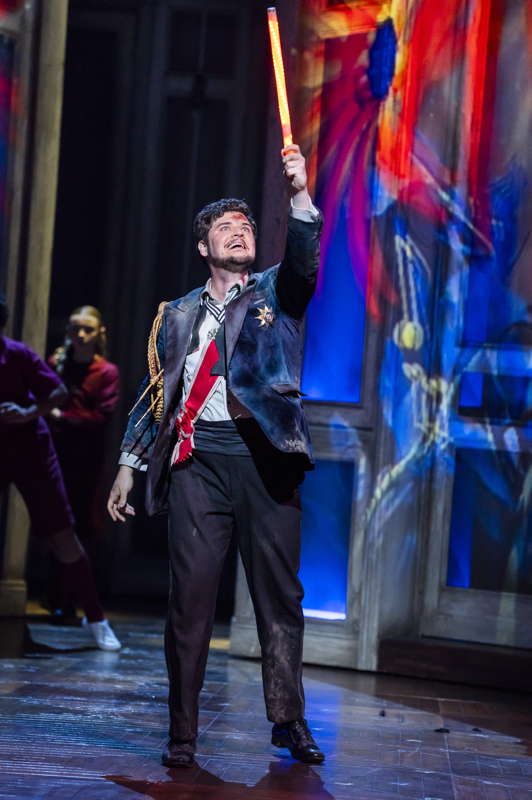
Egor Zhuravskii as Tamino in Opera North's
production of Mozart's The Magic Flute.
Photo © 2024 Tristram Kenton
Claire Lees captured every expressive inflection of Pamina's character - winningly playful in her Act I duet with Papageno, and projecting a real sense of desolation at feeling abandoned by Tamino in Act II.
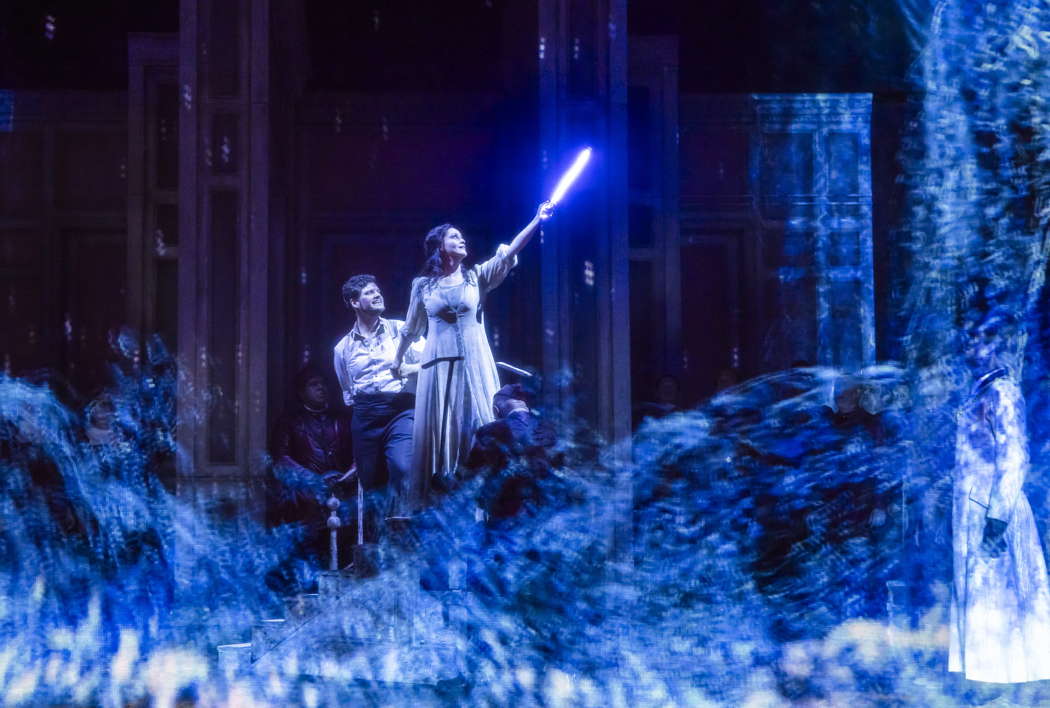
Egor Zhuravskii as Tamino and Claire Lees as Pamina in Opera North's production of Mozart's The Magic Flute. Photo © 2024 Tristram Kenton
As the Queen of the Night, Anna Dennis was a dominating presence, delivering a scorching account of her big Act II aria.
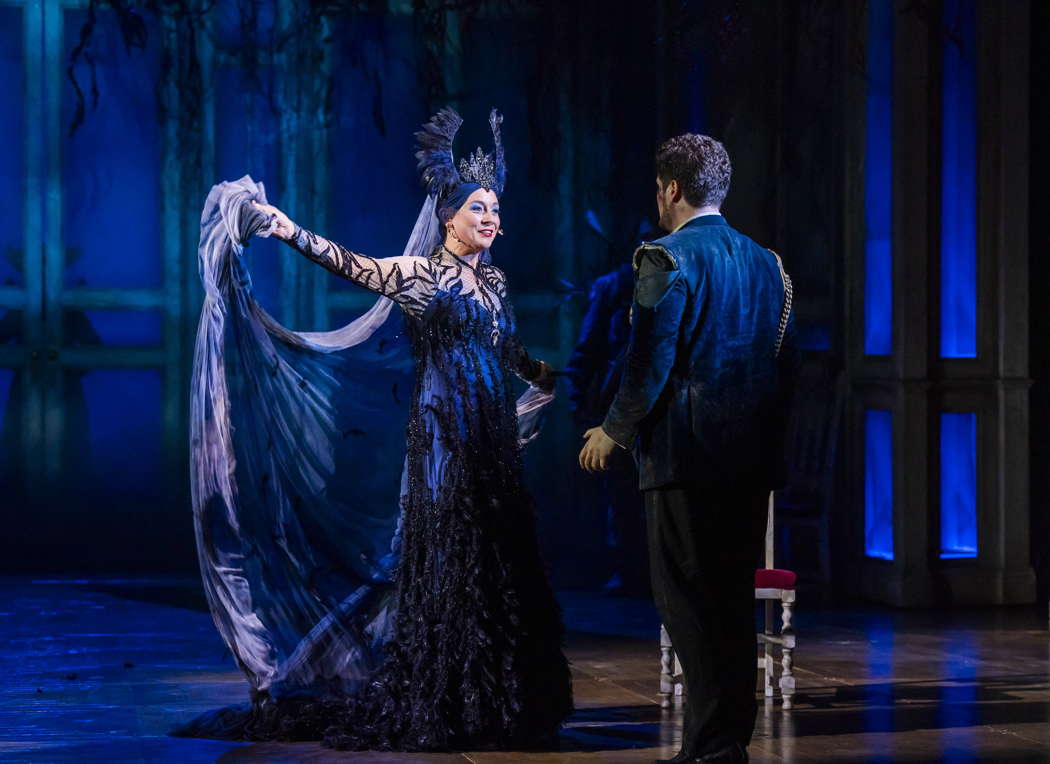
Anna Dennis as the Queen of the Night with Egor Zhuravskii as Tamino in Opera North's production of Mozart's The Magic Flute. Photo © 2024 Tristram Kenton
Emyr Wyn Jones' Papageno was an amusingly down-to-earth Welsh boyo, turning on the charm in his Act I entrance aria, and finally meeting his match in Pasquale Orchard's give-as-good-as-she-gets Papagena.
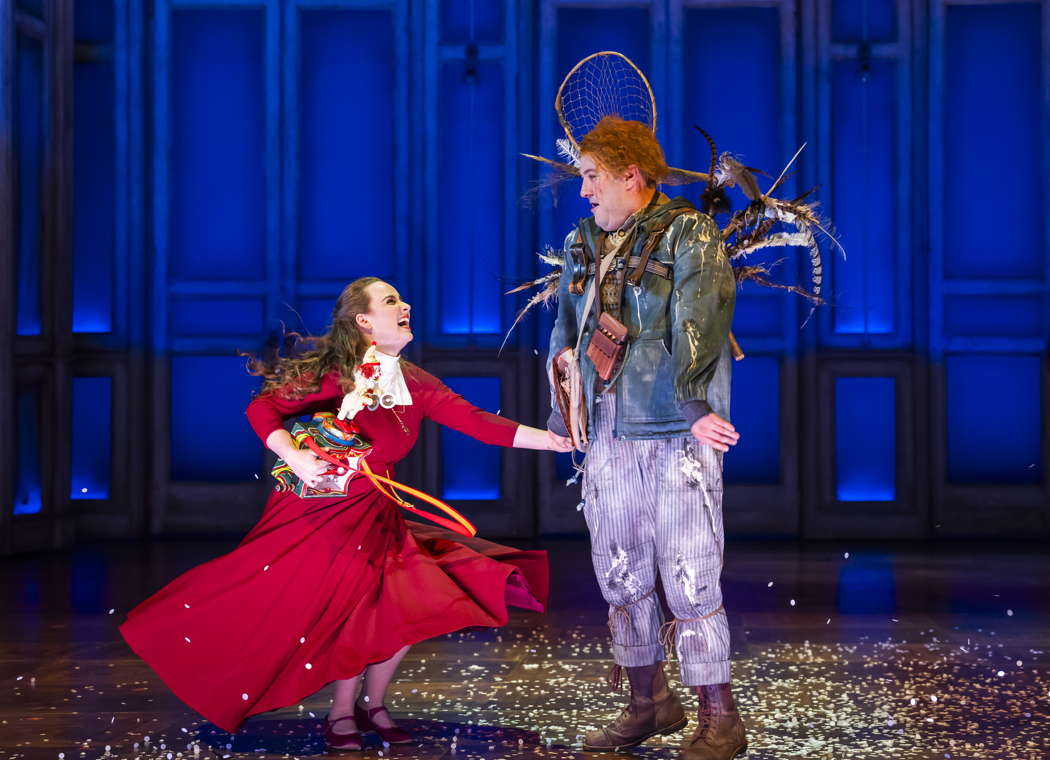
Pasquale Orchard as Papagena and Emyr Wyn Jones as Papageno in Opera North's production of Mozart's The Magic Flute. Photo © 2024 Tristram Kenton
Msimelelo Mbali had the gravitas, and the full vocal range, for Sarastro, with firm bottom notes.
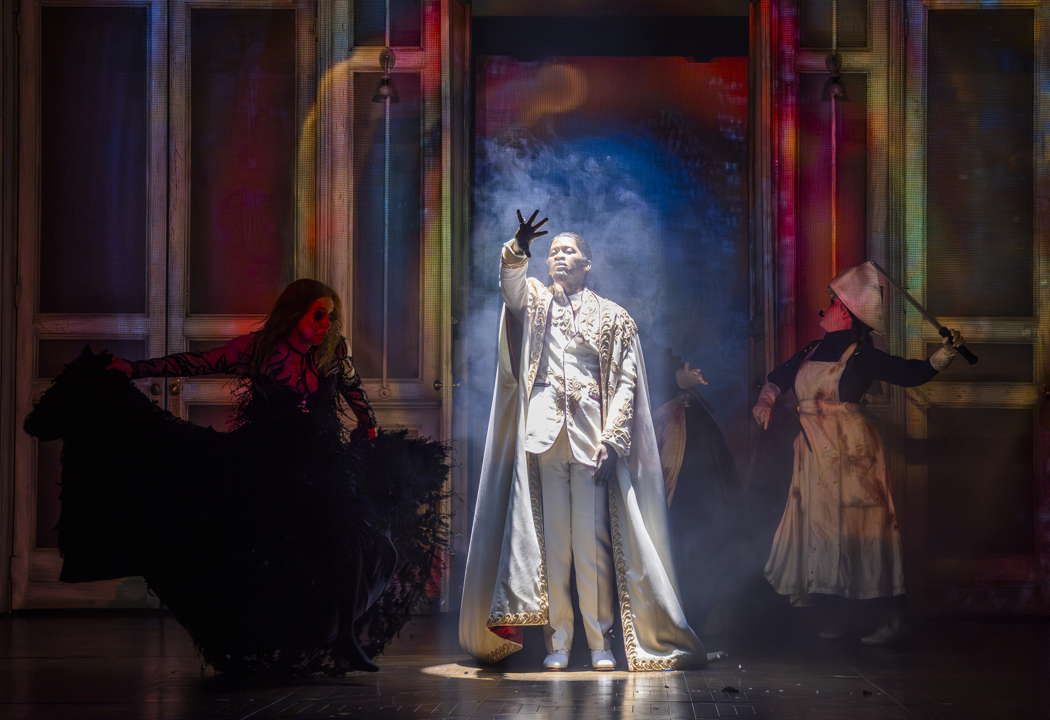
Msimelelo Mbali as Sarastro in Opera North's production of Mozart's The Magic Flute. Photo © 2024 Tristram Kenton
His male-dominated world was one of ostensibly well-meant but strict codes of both behaviour and dress; with everyone outside his inner circle in red; the women's uniforms were a clear nod to the Gilead of Margaret Attwood's novel The Handmaid's Tale - set and costume designs by Colin Richmond.
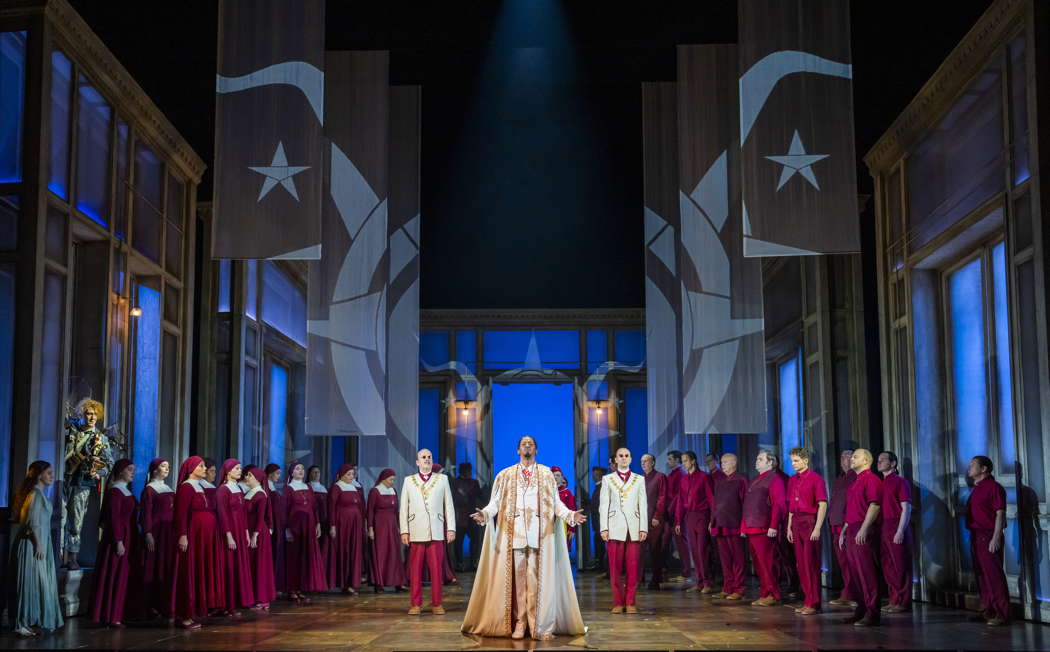
Claire Lees as Pamina (far left), Emyr Wyn Jones as Papageno, Paul Gibson as Second Priest, Msimelelo Mbali as Sarastro and Tom Smith as First Priest with members of The Magic Flute cast and Chorus of Opera North in Opera North's production of Mozart's The Magic Flute. Photo © 2024 Tristram Kenton
Colin Judson's Monostatos was suitably slimy, but could have suggested greater menace.
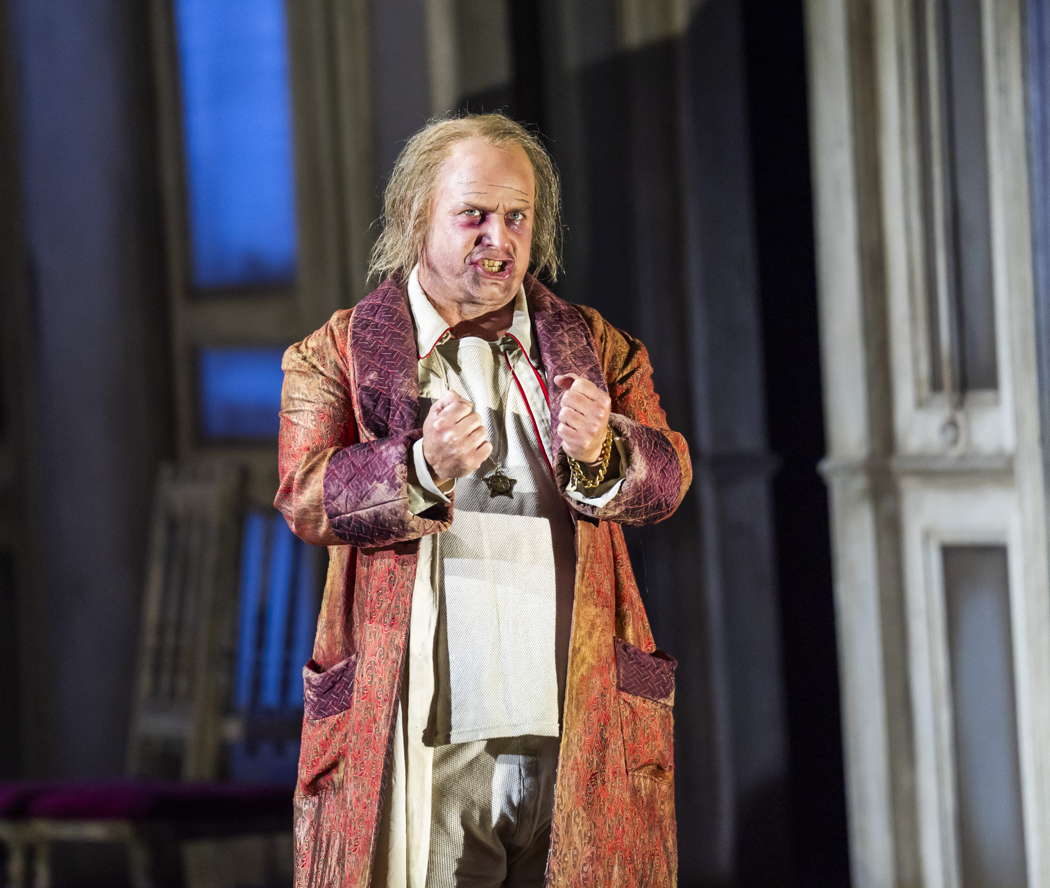
Colin Judson as Monostatos in Opera North's production of Mozart's The Magic Flute. Photo © 2024 Tristram Kenton
Charlie Drummond, Kathryn Sharpe and Hazel Croft were the lively Three Ladies, brandishing their light sabres with aplomb to kill the monster - two menacing giant talons breaking in, one on each side of the set - threatening Tamino.
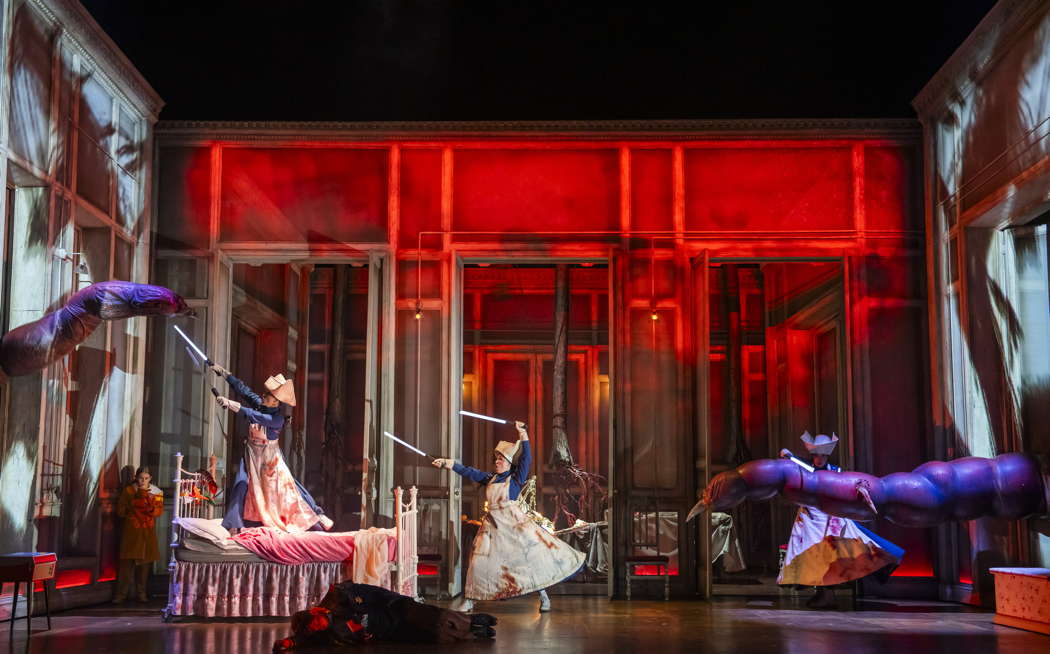
Katie Sharpe as Second Lady, Egor Zhuravskii as Tamino, Charlie Drummond as First Lady, and Hazel Croft as Third Lady in Opera North's production of Mozart's The Magic Flute. Photo © 2024 Tristram Kenton
The Three Boys - Isla Jones, Isabelle Baglio and Hector Wainman - combined a serious sense of obligation with clear concern for those they guided.
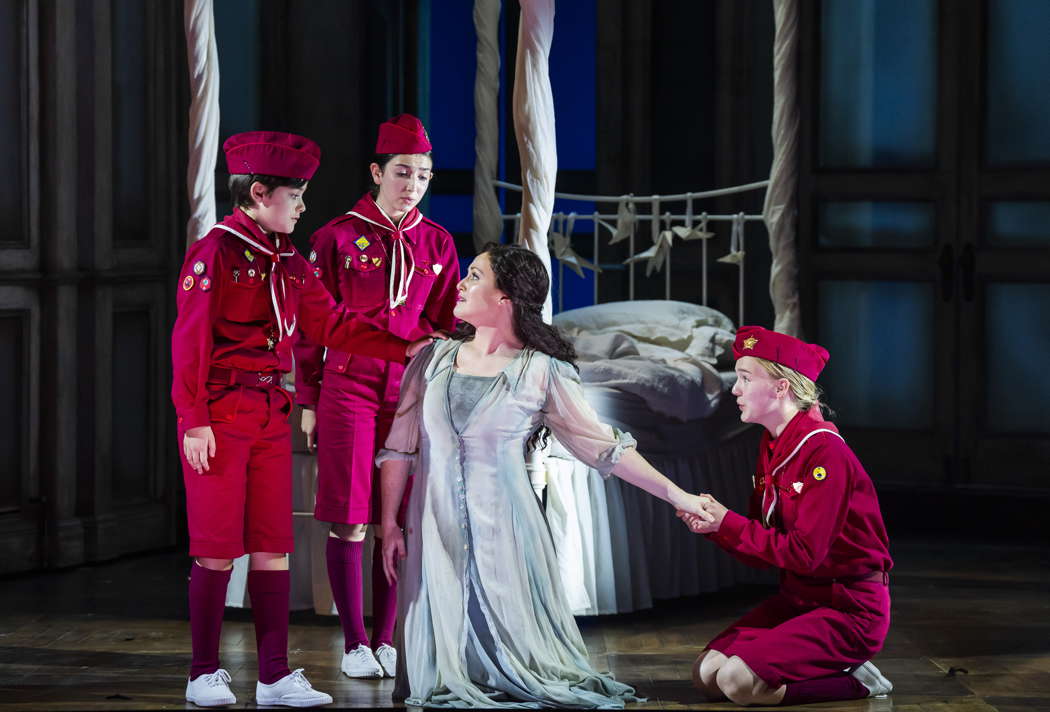
The Three Boys - Hector Wainman, Isabelle Baglio and Isla Jones - with Claire Lees as Pamina - in Opera North's production of Mozart's The Magic Flute. Photo © 2024 Tristram Kenton
Conductor Christoph Koncz balanced the fun and the seriousness in Mozart and Schikaneder's part-pantomime, part-morality tale. The Opera North Orchestra's stylish playing was complemented by the ON Chorus's vivid projection. Chris Davey's atmospheric lighting was unfailingly apt, as were Douglas O'Connell's video designs, projected onto the side and rear of the set and, in the case of the spectacular trials by fire and water, onto a front-of-stage gauze. The opera was sung in Jeremy Sams' witty English translation.
At the end, everyone else goes off, leaving the girl to face a Sarastro abandoned by his followers, her unwavering gaze silently questioning his authority.
Opera North's production will be on the road again in the new year, beginning on 12 February at the Grand Theatre, Leeds. The Magic Flute Lite, a shortened version intended for families and schools. will also be touring, from 20 February to 20 March 2025.
Copyright © 3 December 2024
Mike Wheeler,
Derby UK



